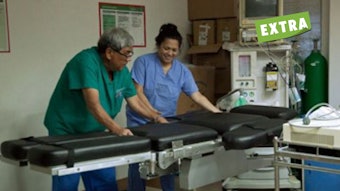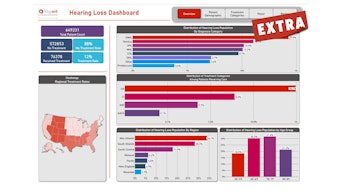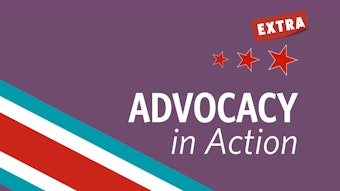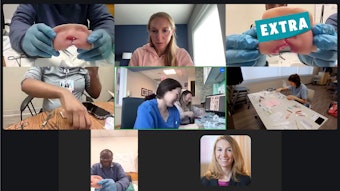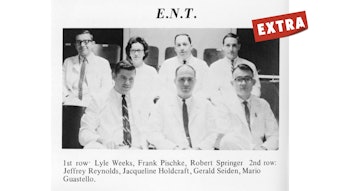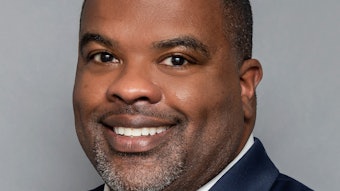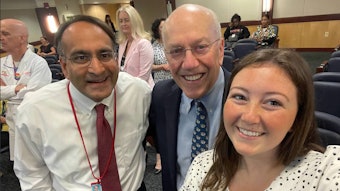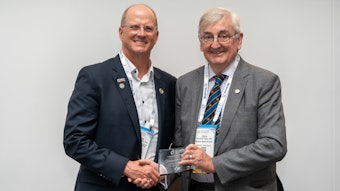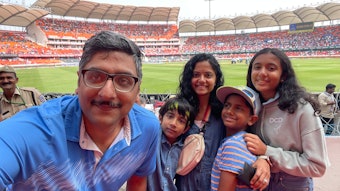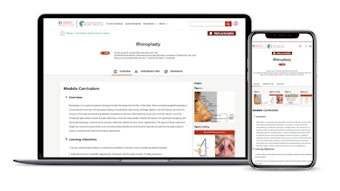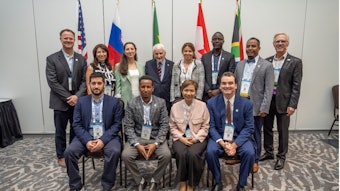Empowering Research Through the CORE Grants Program
The chairs of the Centralized Otolaryngology Research Efforts (CORE) grants program subcommittees offer advice on applying for a CORE research grant or becoming a CORE reviewer.
Murray Ramanathan Jr., MD, CORE General Subcommittee Chair, Rick Nelson, MD, CORE Otology Subcommittee Chair; Jeffrey Liu, MD, CORE Head and Neck Surgery Subcommittee Chair
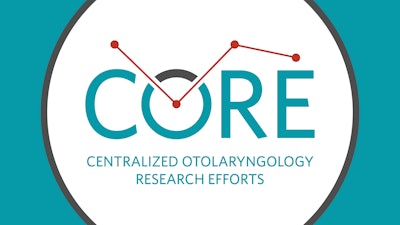
The Centralized Otolaryngology Research Efforts (CORE) grants program serves a vital role in funding researchers to advance research projects, research training, and career development in the field of otolaryngology-head and neck surgery. The program is designed to achieve three objectives:
- Support the most meritorious research in otolaryngology-head and neck surgery.
- Educate young investigators to prepare competitive grant applications, especially trainees and residents.
- Prepare future surgeon-scientists to serve as peer reviewers for NIH and other related research agencies.
CORE Program Funding Collaborators
The CORE grants program is a collaboration between the AAO-HNSF, otolaryngology subspecialty societies, and industry sponsors to provide a uniform and centralized process for grant applications, meritorious review, and administration. The 2025 funding collaborators include:
- American Academy of Otolaryngology–Head and Neck Surgery Foundation
- American Head and Neck Society
- American Rhinologic Society
- American Society of Pediatric Otolaryngology
- Association of Migraine Disorders
- GSK
For a full list of funding partners, visit https://www.entnet.org/quality-practice/research/core-grants-program/
CORE Grant Application Submission Process
The submission process begins with an applicant’s decision to apply for an applicable funding opportunity. A letter of intent (LOI) is submitted to notify the CORE program of an intended application. LOIs for the current cycle are due December 16, 2024. The LOI provides basic information, including the principal investigator information, project title, a project summary or abstract, and keywords related to the focus area, discipline, and topic area. An LOI must be submitted and approved prior to submitting the full grant application.
See the full list of application deadlines below or view the application checklist to learn more about the LOI and full application requirements.
CORE Grant Proposal and Evaluation Process
The evaluation process begins with CORE staff conducting an initial review of the submitted applications for any discrepancies. Once all issues are addressed, the applications are organized by topic and keywords. Concurrently, reviewers for CORE are recruited during the application submission period. CORE subcommittee chairs begin sorting and assigning each application to designated reviewers, when conflicts are resolved the evaluation process can proceed. The CORE Study Section (CSS) comprises three subcommittees, each led by a CORE Chair:
- The General Subcommittee led by Chair Murray Ramanathan Jr., MD, from the Johns Hopkins School of Medicine.
- The Head and Neck Surgery Subcommittee led by Chair Jeffrey Liu, MD, from Bethlehem ENT Associates and Fox Chase Cancer Center.
- The Otology Subcommittee led by Chair Rick Nelson, MD, from Indiana University, and Chair-elect David Jung, MD, from Mass Eye and Ear Institute.
After the grant review and scoring process, the CORE Study Section recommends meritorious applications for final approval to each applicable partner society. Each has its own funding selection process; however, the final decision is typically made by an advisory panel, council, or board. This is the pathway to becoming a CORE awardee, as exemplified by our 2024 CORE awardees.
Tips from the CORE Chairs
Our CORE Chairs offer the following guidance for applicants:
“Particularly for resident grants, I would recommend first identifying a research mentor and a project that you are very interested in—focus on the significance of the project. Projects need to be significant so that once the work is completed it will have an impact on either our understanding of a disease process or our clinical care.”
-- Rick Nelson, MD, CORE Otology Subcommittee Chair
“Be thoughtful about the questions you ask and seek out mentors to help you with your research.”
-- Murray Ramanathan Jr., MD, CORE General Subcommittee Chair
“Do not underestimate the time it takes to write a CORE grant. Sometimes you look at the components and say, ‘Yes, I can do that.’ But when you start to engage in the process, it develops a life of its own. So, I encourage all the applicants to start early.”
-- Jeffrey Liu, MD, CORE Head and Neck Surgery Subcommittee Chair
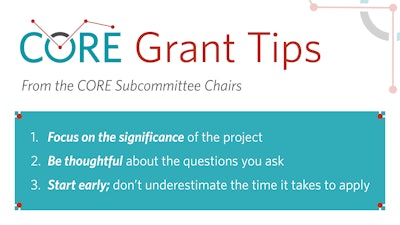
For more advice from our CORE Chairs, view our informational video on grant application best practices.
CORE Grant Application Timeline
For Applicants:
- December 16, 2024: LOI submission deadline
- January 15, 2025: Full application submission deadline (LOI approval required)
- July 1, 2025: Project start date for awarded grants
*All documents are submitted through ProposalCentral
For Reviewers:
- January 2, 2025: Deadline for CORE reviewer applications
If you are interested in being a reviewer for one of these subcommittee, click here to learn more and submit a reviewer application.
